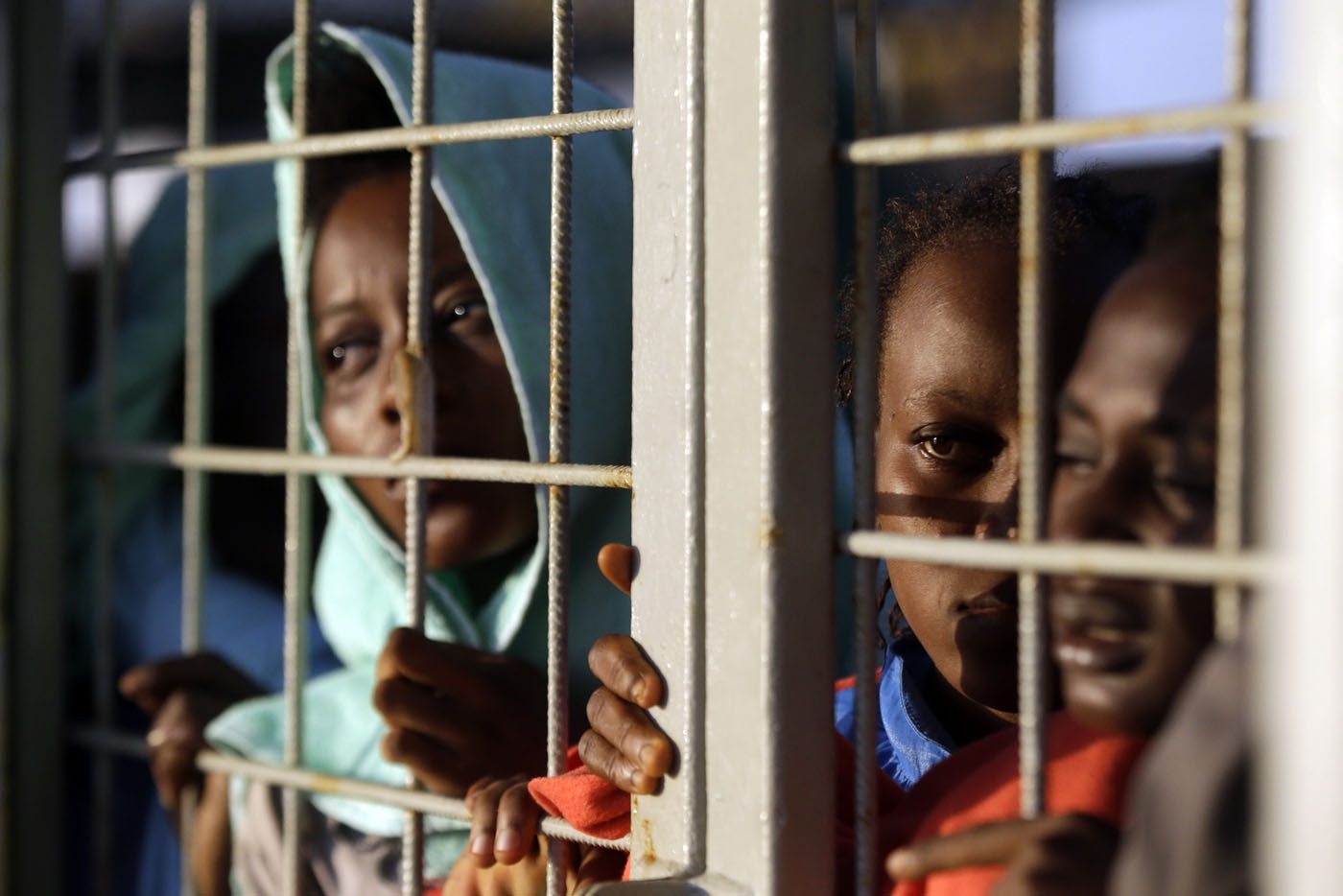The asylum crisis has emerged as a pressing issue for the global community, presenting one of the toughest challenges to modern international policy amid the escalation of both internal and international conflicts and the blatant violations of human rights that ensue. Refugees are among the most vulnerable groups, enduring immense suffering due to wars, persecution, and natural disasters. The rising number of refugees, spurred by ongoing global events, imposes significant challenges on the international community, particularly because the refugee issue encompasses various dimensions, including humanitarian concerns. Countries embroiled in wars and conflicts face heavy losses, but perhaps the most impactful aspect is the influx of asylum seekers into host countries. These waves bring substantial economic and social burdens, forcing host countries to shoulder immense responsibilities and contend with the misuse of asylum systems and illegal movements that pose security threats.
I. The Global Refugee Situation
There is no single, universally agreed-upon definition of international protection for refugees in any single document. The factors that necessitate protection often coincide with those that drive asylum. Hence, international protection is intrinsically linked to the definition of a refugee, recognizing their need for such protection.
The 1951 Refugee Convention and the 1967 Protocol, which removed the Convention’s spatial and temporal limitations, define a refugee as “a person who, owing to well-founded fear of being persecuted for reasons of race, religion, nationality, membership of a particular social group or political opinion, is outside the country of [their] nationality and is unable or, owing to such fear, is unwilling to avail themselves of the protection of that country.”
The 1969 OAU Convention Governing the Specific Aspects of Refugee Problems in Africa broadened the definition of a refugee, setting it apart from the 1951 UN Refugee Convention in two significant ways. First, it introduced a new category of refugees: individuals forced to flee their countries due to external aggression, foreign domination, or events seriously disrupting public order. Second, it removed the time limitations on the right to asylum, ensuring that those meeting the criteria for refugee status could seek protection without a specific time constraint. To qualify as a refugee, a person must be outside their country of nationality, have a well-founded fear of persecution, and lack protection from their home country.
Here, it is crucial to distinguish between refugees and immigrants. Immigrants leave their country voluntarily to move elsewhere, while refugees are compelled to flee to escape persecution and threats to their lives. Immigrants can typically return home without risk, maintain normal relations with their country, and do not require special protection. In contrast, refugees are entitled to international protection.
In an effort to protect refugees, the UN General Assembly adopted the Global Compact on Refugees on December 17, 2018. This Compact provides a framework for equitable and enforceable responsibility-sharing, acknowledging that sustainable solutions to refugee crises require international cooperation. It offers a plan for governments, international organizations, and other stakeholders to support host communities. Analyzing the global landscape, we find that there is a stark disparity among countries: 86% of refugees, according to the United Nations High Commissioner for Refugees (UNHCR), are hosted by low- and middle-income countries, which negatively affects these countries, while wealthier countries host fewer refugees.
The shifting dynamics of the refugee crisis from Europe to Africa and Asia underscore the urgent need to review current mechanisms. With the increasing number of refugees, it is clear that previous approaches, centered on specific regions and cases, are inadequate.
II. The Refugee Situation in Egypt
Throughout modern history, Egypt has served as both a destination and a transit country for refugees of various nationalities, including those from Africa and Europe. Since 2011, the country has welcomed displaced individuals from Libya following the outbreak of war and the intensification of armed operations after the Libyan Revolt. That same year, Egypt also opened its doors to Syrians escaping the escalating conflict in their homeland in the wake of the Syrian revolution. The situation took another turn in April 2023 with the onset of conflict in Sudan, leading to a significant increase in Sudanese refugees seeking safety in Egypt. This influx has been accompanied by the continued arrival of asylum seekers from other African countries.
As per the UNHCR’s April 2024 report, Egypt is now home to 575,000 registered refugees and asylum seekers from 61 different countries—almost double the number from the previous year due to ongoing regional conflicts across its borders. These refugees predominantly reside in urban areas of major cities, with a significant number of new arrivals coming from Sudan. Since the conflict in Sudan began, the UNHCR has recorded a five-fold increase in the number of Sudanese refugees. Sudanese nationals now form the largest refugee group in Egypt, followed by Syrians, and then smaller groups from South Sudan, Eritrea, Ethiopia, Yemen, Somalia, and Iraq with diverse social, economic, and religious backgrounds. Egypt is currently hosting the largest number of registered refugees and asylum seekers in its history.
Simultaneously, the resurgence of conflicts and political instability in East Africa and the Horn of Africa, along with turmoil in Iraq and Yemen, has driven thousands from South Sudan, Ethiopia, Iraq, and Yemen to seek refuge in Egypt. As of May 15, 2024, UNHCR has registered 500,000 Sudanese refugees, 156,387 Syrians, 41,000 South Sudanese, 35,000 Eritreans, 17,516 Ethiopians, 8,447 Yemenis, 7,373 Somalis, 5,562 Iraqis, and individuals from over 54 other nationalities.
However, it is important to note that these figures only represent officially registered refugees with the UNHCR. The actual number of refugees on Egyptian soil is likely higher. Additionally, the International Organization for Migration estimates that there are 9,012,582 international migrants living in Egypt, accounting for about 9% of the total population. This influx puts significant strain on the economy and security of the Egyptian state, leading to inevitable demographic changes and cultural shifts. Refugees in Egypt have access to the same services as citizens at the same cost, which further strains public services and drives up prices for the average citizen amid the ongoing economic crisis.
Egypt lacks specific legal legislation determining the status of refugees, who reside in cities rather than camps. Consequently, the general rules governing their legal status are derived from international conventions on refugee status.
With the surge in refugees, Egypt faces a complex reality, dealing with the security, humanitarian, economic, and legal issues that ensue. Addressing the refugee problem necessitates the establishment of legal frameworks to protect the state and develop its resources and capacity. In effect, the refugee crisis has evolved from an individual phenomenon to a global one intertwined with international peace and security.
To address the influx of refugees, the Egyptian government has taken significant steps, including the Cabinet’s approval of a draft law regulating asylum. This draft law requires refugees and asylum seekers to regularize their status within one year of the executive regulations’ implementation. Proper registration is crucial, providing reliable information about those in the country and aiding in the management of services. The government has begun legalizing the status of refugees and immigrants to manage their numbers and assess the cost of services provided to them across various sectors, especially during these challenging economic times that require refugees to contribute to the national economy by paying for their accommodation, much like the policies in neighboring countries.
The UNHCR’s financial requirements in Egypt are estimated at $151.4 million, of which only $55.6 million have been secured, highlighting the financial strain Egypt faces as a refugee-hosting country. Egypt, as a government and civil society, cannot bear this burden alone; a robust international response is required to assist refugees. This situation highlights Egypt’s efforts to aid refugees despite the significant economic, political, and security challenges the world is facing. These pressures strain the Egyptian economy and underscore the urgent need to reassess current mechanisms in light of the recent surge in asylum cases, particularly given the fact that, in the past, the refugee situation was confined to specific locales and isolated cases, but the growing scale now demands a more comprehensive and coordinated global effort.













